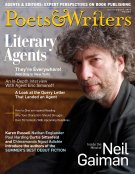Corona
By Bushra Rehman
"Abandoned Bread Truck"
Corona, Queens
January 1985
Every few weeks, and really it could have been less, an abandoned car showed up outside our dining room window. The car would be left there sometime on a Saturday night, whole for just a moment before it would start to decay. Every morning after that, pieces would go missing. The tires would be the first to vanish. Then the windows would be shattered and the insides gutted. Finally, the engine lid would pop open and pieces would disappear. Then, as suddenly as the car had come, it would be gone. Its space wouldn’t be empty for long before another car would show up to take its place.
On winter mornings, I would sit on the radiator by the window. Some days, it was the only way to stay warm. I would see the abandoned cars and imagine I was living in the desert, or the high distant plain, walking past the same dead animal, wolf, laid to rest on the sand and in the heat. I’d watch the way pieces of it would disappear, stripped by secret claws and beaks. Pieces would always disappear while I was asleep.
Then there was one day, a bitter January morning, when a bread truck delivering fresh Italian bread, stalled right outside of our house. The truck driver was a big Italian. He got out and cursed and kicked the truck. His curses made smoke in the air. He walked off to find a pay phone, but there was no working pay phone anywhere in Corona. He walked around the corner and disappeared.
It was a snow day, and already children were coming outside to make snow angels and pretend they were skating on patches of ice. They came out in their boots and their cheap coats from Alexander’s. It was Julio and his friends who noticed the abandoned bread truck first. There was always a group of boys who moved around Julio like wobbly planets.
I leaned against the window and watched them. They circled the truck, a child they were ready to gang up on. Julio jumped up to the cab and tried to pull open the door, but it was locked. His friends threw snowballs as if they were handballs. The white on white hit the metal and bounced off the truck. But soon even they got bored with that and wandered off to make trouble somewhere else.
Across the street in the buildings, I began to see faces in the windows: the three old Italian ladies who always wore black, the young Dominican mothers of the kids in my school holding baby brothers and sisters on their hips. The bread truck had made the mistake of stalling on the street where all the abandoned cars were left. Everyone was watching to see what would happen.
The old Italian ladies were the first to disappear from their windows. As if they had been given a signal, they all vanished from their different apartments. They showed up again, on the snow, like black crows on ice. I saw them creep up to the back of the truck. I ran to tell my mother. She was in the kitchen scrubbing the counters with Mr. Clean.
“Ammi, something’s happening.” By the time my mother washed her hands and came back with me to the dining room window, there was a mob on the street.
Julio had come back with his father and a crowbar. His father looked around for the driver, and when he saw no one, he popped open the back like he was opening a can of soda, then jumped into the truck. He was gone for a few minutes. We all waited, not knowing what to do. When he came out, his arms were full of loaves of bread. He threw an armful to Julio who ran home with it.
Slowly, other people started coming to the back of the truck. The old Italian ladies were at the head, but behind them was the Korean grandmother, the young Dominican mothers, and other kids from my school. Some of them waited for Julio’s father to throw them bread. Others jumped in themselves and grabbed armfuls of Italian bread with or without seeds, rolls and whole loaves. They ran home hugging the fresh bread to their chests.
I looked up at my mother, waiting for her to say something about the people in our neighborhood, but instead she said, “Put on your coat.”
“Kya?” I said, afraid I would get in trouble if I had misheard. This was the same mother who made me walk back to the bodega on the corner to give back even five cents any time they gave me too much change.
She said again, “Put on your coat and get some bread.”
When I got outside, it felt like someone had thrown a block party in the middle of the winter street. I had never seen my neighbors smiling at each other this way. I walked to the back of the truck, feeling cold in my thin coat.
But the ice of January was nothing when Julio’s father put a loaf of steamy, soft bread in my arms. It was like a baby, a new baby, for us to have. The snow crunched under my feet, and I looked up to see my mother smiling down at me, her face pressed against the glass.
Excerpted from Corona by Bushra Rehman, published in August by Sibling Rivalry Press. Copyright © 2013 by Bushra Rehman. All rights reserved.








